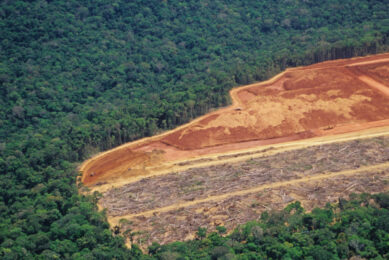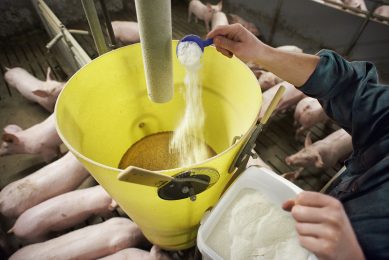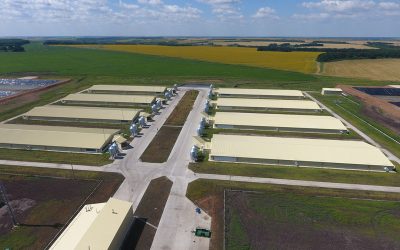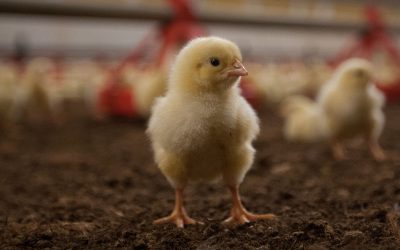Feed industry challenges in sub-Saharan Africa
Feed industry role players from developed nations are often surprised to discover the relatively complex, very dynamic, and continuous growing feed industry in a so-called developing country such as South Africa, and the large role it plays within that agricultural industry.
This potential exists for the rest of Africa as well, if only African nations would realise this and also promote the development of the overall supply chain within their countries. For developing nations to be able to compete within international markets, a high level of technological innovation is necessary.
South Africa is at the forefront in leading technological innovation in Africa, and benchmarks with the best in the world. This is a feature that will ensure continuous growth in all of the feed related industries, but often comes at some price.
Regulation required
The role that an official representative industry body continuously plays in ensuring self-regulation and improved regulation by Government has lately been one of the critical success factors in South Africa to manage and execute the issues of importance to its feed industry.
The task of regulating the industry is too large for developing Governments to handle on its own. However, the main issue that exists now is the vision of self-regulation in the industry. The lack of capacity of Government to police its own legislation is problematic. The solution is not for Government to regulate, monitor and control the entire feed industry, but rather for it to place appropriate policies and legislation in place to allow the industry to function optimally without uncompetitive advantages within the industry.
In the South African feed industry, there are a small number of role players that together control the largest market share, especially for poultry feeds. This leaves only a limited market share for smaller producers in that industry.
Integration rules
The majority of the larger South African feed companies are owned by a holding company, the poultry producers, vertically integrated to increase control over its suppliers of inputs, improving economies of scale and lowering prices.
The Competition Commission is often concerned when an entire value chain is sometimes owned by one organization. They feel that very little protection is given to other role players in the industry as well as to the consumer.
Are these really valid concerns? Weren’t business models rather forced to adapt, and strategies revised to ensure a competitive industry, with the added benefit of sustainable growth and so much needed job creation in a changing environment.
High levels of integration as seen in the South African poultry/feed industry would usually increase the level of competition between the major industry role players.
Why is it wrong or unacceptable for agribusinesses to grow and continuously adapt their business models to be as competitive as possible?
As with other listed companies, shareholders also need to be satisfied with returns and growth prospects in order for them to invest in expansion and sustainable growth. Without this growth and considering the ever-increasing demand for produce, the local industry will be at a disadvantage and will be flooded with large quantities of imports from agro-industries abroad.
Although a non-restricted importation allowance of food may slightly favour consumer prices, the repercussions that this may have on job creation and the economy in general, would be fatal.
Removing barriers
Different from developed nations, governments in developing countries are more involved in terms of creating an environment that is conducive for business to perform well (or not so well?).
It should not be the task of Government to grow an industry, but it is its responsibility to ensure that barriers are lowered in order for innovation to take place and that policy restriction and infrastructural obstacles are removed. The ultimate goal of sustainable growth must be maintained.
From an extensive study done by the University of Pretoria, it was concluded that large feed manufacturers in South Africa have the capacity to produce optimally, but market conditions are often forcing them to produce below the desired potential levels.
It was further evident that the lack of appropriate policy and policing by developing governments of the feed, and its related supply chain industries is restricting the competitiveness of these industries.
The study further noticed that industries in the overall supply chain are all exposed to, for example, very weak infrastructural support and maintenance from Government.
Better infrastructure required
Road (secondary and tertiary) and railways account for almost all grain transportation and delivery systems in and around the country. Transporting feed ingredients is becoming alarmingly expensive.
The end result is that agribusinesses cannot be competitive while costs keep escalating. The constant threat of land claims and the nationalisation of farm lands in South Africa are also creating a trust barrier between producers and Government.
Economies of scale are one of the principles that will ensure that food security does not become an issue. However, if certain threats become realities, agricultural industries will fall prey to high levels of imports as well as negative growth in the agricultural sector. Is that good for a developing nation’s economy where job creation is supposable such a priority?
Food price watchdogs in developing nations must therefore understand how the ripple effect of a multiplication of costs in the beginning of the chain caused by external forces can lead to a large impact on the end-consumer price.











